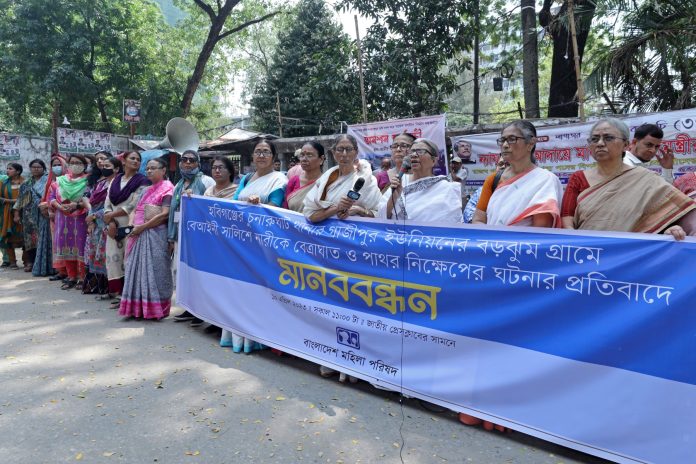An Islamic cleric and three village elders in Bangladesh were arrested on charges they ordered a woman to be caned and stoned after she was accused of an extramarital affair, police said Monday.
Police said Hamida Sultana was “caned 82 strokes” and “stoned 80 times” with small brick pieces after an imam issued a religious decree, or fatwa, punishing her last week.
Sultana told AFP she was “a victim of terrible injustice.”
“I can’t express in language what they did to me,” the 30-year-old said.
The Muslim South Asian nation of 170 million people has a secular legal system and applying sharia law in criminal cases is illegal.
The fatwa triggered an outcry, with feminist groups and rights activists staging protests to demand the perpetrators’ prosecution.
“They acted like medieval people,” Fauzia Moslem, the president of the country’s largest woman’s group, told AFP.
Police inspector Zakir Hossain said officers arrested four people, including the imam of the mosque in Habiganj in the northeast, after Sultana filed a criminal case on April 7 against 17 people.
“The village council ordered the caning and stoning in the name of sharia law after she was accused of an extramarital affair,” Hossain told AFP.
The village elders “said it will absolve her from her sin and will redeem her honor,” he added.
Sultana’s husband Anwar Mia, who works in the Gulf country of Oman, returned after the incident, he added. “He also seeks justice for what happened to his wife.”
Decades ago, village councils in rural Bangladesh commonly used sharia to punish Muslim women accused of adultery.
In a 2011 ruling, Bangladesh’s Supreme Court allowed fatwas to be issued but prohibited their enforcement.
The decision effectively allowed sharia to be followed voluntarily, but prohibited any kind of punishment in the name of Islamic law by clerics or village councils.









